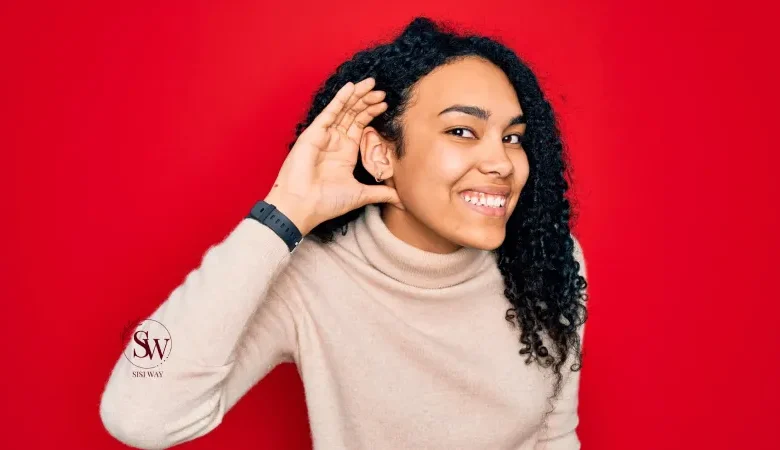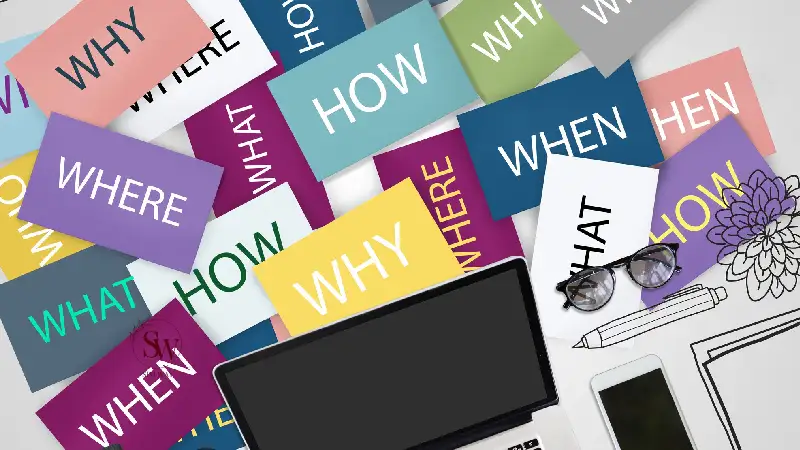How to Be a Better Listener?

How to Be a Great Listener?
In today’s fast-paced world, we often find ourselves engaged in conversations where we are physically present but mentally distant. We may hear the words being spoken, but are we truly listening? Listening is a vital skill that cultivates meaningful connections, fosters empathy, and enhances understanding. By becoming a better listener, we can enrich our relationships, improve communication, and deepen our personal growth. In this article of sisiway, we will explore practical strategies and techniques to develop the art of active listening.

-
Give Your Undivided Attention:
Giving your undivided attention is a fundamental aspect of becoming a better listener. In a world filled with distractions, it is crucial to eliminate external disturbances and focus solely on the speaker. By putting away electronic devices, maintaining eye contact, and positioning yourself in a way that conveys openness and attentiveness, you create a safe and respectful space for the speaker to express themselves. This act of giving undivided attention demonstrates your genuine interest in what they have to say, allowing for deeper connection and understanding to form. When you give your undivided attention, you show the speaker that their words matter and that you value their perspective, fostering a more meaningful and impactful conversation.
-
Practice Empathy and Non-judgment:
Practicing empathy and non-judgment is a vital component of being a better listener. Empathy involves putting yourself in the speaker’s shoes, seeking to understand their emotions, experiences, and point of view. By approaching conversations with an open mind and suspending judgment, you create a safe space for the speaker to freely express themselves. This empathetic stance allows you to connect on a deeper level, showing the speaker that their thoughts and feelings are valid and respected. By setting aside preconceived notions and biases, you foster an environment of trust and mutual understanding, paving the way for more meaningful and authentic communication. Through empathy and non-judgment, you can truly listen and empathize with others, nurturing stronger relationships and promoting a more inclusive and compassionate world.
Also read: How to Get 8 Hours of Sleep?
-
Avoid Interrupting and Jumping to Conclusions:
Avoiding interrupting and jumping to conclusions is essential for becoming a better listener. When we interrupt or prematurely jump to conclusions, we hinder the flow of the conversation and fail to fully understand the speaker’s message. Instead, it is important to allow the speaker to express themselves fully before responding. By actively listening without interruption, we demonstrate respect for the speaker’s thoughts and opinions. Furthermore, by refraining from prematurely forming judgments or assumptions, we create space for deeper understanding and meaningful dialogue. This approach encourages the speaker to feel heard, validated, and encourages a more open and honest exchange of ideas. Through patience and restraint, we can cultivate an environment that fosters meaningful connections and promotes effective communication.

-
Use Verbal and Non-Verbal Cues:
Utilizing both verbal and non-verbal cues is a powerful way to enhance our listening skills and become better listeners. Verbal cues, such as nodding, using affirming statements, or asking relevant questions, show the speaker that we are actively engaged and interested in what they are saying. These cues provide encouragement and validation, creating a supportive atmosphere for open communication. Additionally, non-verbal cues, such as maintaining eye contact, adopting an open posture, and mirroring the speaker’s body language, convey our attentiveness and genuine interest. By employing both verbal and non-verbal cues, we establish a strong connection with the speaker, making them feel heard, understood, and valued. These cues foster trust, encourage further sharing, and contribute to a more meaningful and productive dialogue.
-
Reflective Listening:
Utilizing reflective listening is a powerful technique for becoming a better listener. Reflective listening involves paraphrasing and summarizing the speaker’s words to confirm understanding and demonstrate active engagement. By reflecting back the speaker’s thoughts and feelings, we show that we are genuinely listening and seeking to comprehend their message on a deeper level. This technique not only helps clarify any potential misunderstandings but also allows the speaker to feel heard and validated. Reflective listening encourages a more meaningful exchange by encouraging the speaker to elaborate further or correct any misconceptions. It fosters a sense of empathy and connection, strengthening the communication bond and promoting mutual understanding. Through reflective listening, we can create a safe and supportive space for open dialogue and establish stronger relationships based on active and attentive listening.
-
Ask Open-Ended Questions:
Asking open-ended questions is a valuable skill that enhances our ability to be better listeners. Open-ended questions encourage the speaker to provide thoughtful and detailed responses, fostering a deeper and more meaningful conversation. By asking questions that cannot be answered with a simple “yes” or “no,” we invite the speaker to express their thoughts, feelings, and experiences more fully. This approach demonstrates our genuine interest in understanding their perspective and encourages them to reflect on their own insights. Open-ended questions also help us gain a broader understanding of the topic being discussed and allow the speaker to delve deeper into their thoughts, leading to a richer and more engaging exchange. By incorporating open-ended questions into our conversations, we create opportunities for exploration, discovery, and connection, ultimately improving our listening skills and strengthening our relationships.

-
Cultivate Mindfulness:
Cultivating mindfulness is a powerful practice that can significantly enhance our listening skills and make us better listeners. Mindfulness involves being fully present in the moment, letting go of distractions and preoccupations. When we approach conversations with a mindful mindset, we can focus our attention on the speaker’s words, tone, and body language. By being fully engaged and attuned to the present moment, we absorb information more effectively and gain a deeper understanding of the speaker’s message. Mindfulness also helps us become aware of our own biases, judgments, and internal chatter, allowing us to set them aside and listen with an open and non-reactive mindset. By cultivating mindfulness, we create an environment of receptivity, empathy, and genuine connection, enabling us to truly hear and understand others in a more profound way.
-
Practice Active Listening in Everyday Conversations:
Practicing active listening in everyday conversations is a transformative habit that can significantly improve our listening skills and make us better listeners. Active listening involves being fully present, engaged, and responsive to the speaker. By consciously applying the techniques mentioned earlier, such as giving undivided attention, practicing empathy, avoiding interruptions, using verbal and non-verbal cues, employing reflective listening, and asking open-ended questions, we create an environment conducive to meaningful and effective communication. By making active listening a regular practice, we cultivate stronger connections, deepen our understanding of others, and foster a greater sense of empathy and respect. Through active listening, we not only enrich our relationships but also create a positive impact on our personal and professional interactions, leading to more fulfilling and rewarding conversations.
Read more: Funny Simple Pleasures

How to be a Better Listener in a Relationship?
Being a better listener in a relationship is crucial for fostering understanding, trust, and emotional connection. Firstly, it is essential to create a safe and supportive space for open communication. This can be achieved by giving your undivided attention, eliminating distractions, and actively engaging with your partner. Show genuine interest in what they have to say, maintain eye contact, and use affirming verbal and non-verbal cues to convey your attentiveness. Practice empathy by seeking to understand their perspective without judgment or interruption, allowing them to express themselves fully. Reflective listening plays a vital role in relationship communication. Paraphrase and summarize their words to ensure you understand their message accurately. This not only confirms your engagement but also demonstrates that you value their thoughts and emotions. By actively listening and reflecting, you show your partner that their words matter and that their feelings are heard and acknowledged.
Secondly, avoid jumping to conclusions or interrupting during conversations. Give your partner the space to express themselves without interjecting or formulating a response prematurely. Suspend judgment and listen with an open mind, allowing them to share their thoughts and emotions without fear of being misunderstood or criticized. Be patient and let them finish before offering your perspective. Ask open-ended questions to encourage further exploration and understanding. By creating an environment of attentive and non-judgmental listening, you foster a deeper emotional connection and strengthen the bond with your partner. Effective listening in a relationship requires ongoing practice and commitment, but the rewards are worth it – improved communication, increased trust, and a more fulfilling and harmonious partnership.

Importance of Being a Good Listener
Being a good listener is of utmost importance in various aspects of life. It plays a vital role in building strong relationships, fostering effective communication, and promoting understanding and empathy. By actively listening to others, we demonstrate respect, create a safe space for expression, and validate their thoughts and emotions. Being a good listener allows us to gain deeper insights, broaden our perspectives, and cultivate empathy by truly understanding others’ experiences and viewpoints. It strengthens bonds, builds trust, and enhances collaboration in personal and professional settings. Furthermore, being a good listener enables us to make informed decisions, resolve conflicts more effectively, and nurture a sense of connection and belonging. Ultimately, the ability to listen attentively is a powerful skill that positively impacts our interactions, enriches our relationships, and contributes to personal growth and fulfillment.

FAQ
- How can I become a better listener?
To become a better listener, start by giving your undivided attention, eliminating distractions, and showing genuine interest in what the speaker has to say. Practice empathy, avoid interrupting, and suspend judgment. Use verbal and non-verbal cues to demonstrate your engagement, reflect back the speaker’s words to confirm understanding, and ask open-ended questions to encourage deeper conversation.
- Why is active listening important?
Active listening is important because it fosters understanding, strengthens relationships, and promotes effective communication. It allows the speaker to feel heard, valued, and respected. Active listening cultivates empathy, reduces misunderstandings, and creates a safe space for open dialogue. It enhances connection and enables a deeper appreciation of others’ perspectives and experiences.
- How can I avoid interrupting and jumping to conclusions while listening?
To avoid interrupting and jumping to conclusions, practice patience and self-awareness. Be mindful of your tendency to interrupt and consciously allow the speaker to finish before responding. Focus on understanding rather than formulating your response. Suspend judgment and remind yourself to listen with an open mind. Cultivating these habits of restraint and mindfulness will help you become a more attentive and effective listener.
Conclusion:
Being a better listener is a transformative skill that can profoundly impact our relationships and personal growth. By giving our full attention, practicing empathy, and using reflective techniques, we can create an atmosphere of understanding, trust, and connection. Let us strive to be active listeners and unlock the power of meaningful communication in our lives.
Also read: 19 Lucrative Ideas for Freelance Jobs 2024



